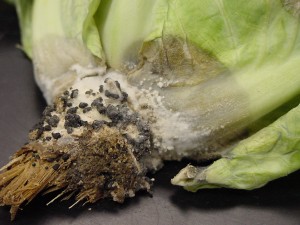Basil downy mildew was reported in a greenhouse in Virginia last week. The first question I asked myself was, “How can that be?”
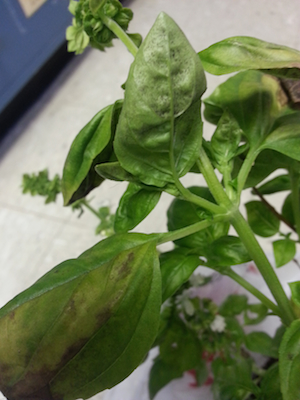
Basil downy mildew on overwintered sweet basil plant.
Note symptoms on leaf top side and downy mildew spores on leaf underside.
The infected plants in question, roughly 12 mature potted sweet basil plants, were just a few plants that were left over from last fall and carried over the winter in a non-heated high tunnel on benches with heated mats and row cover. The heated mats and row cover were for protecting other crops. Interestingly, the basil did not freeze out, somehow managed to survive the winter without much heat, and produce downy mildew spores once the outside temperatures rose.
[Read more…]

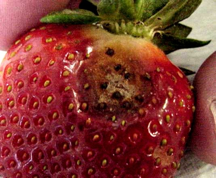
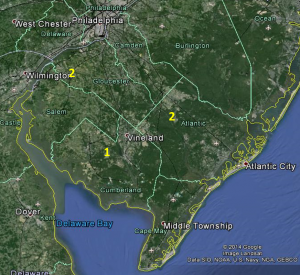
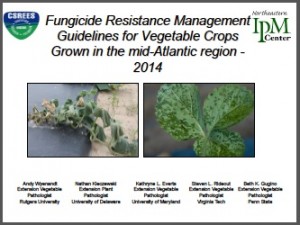 Since 2007, Fungicide Resistance Management Guidelines have been available and distributed to vegetable growers throughout the region. Over, 20,000 FRAC guides have been distributed over the past 8 years at local, state, and regional vegetable meetings and conferences. Much of this work has been funded by the
Since 2007, Fungicide Resistance Management Guidelines have been available and distributed to vegetable growers throughout the region. Over, 20,000 FRAC guides have been distributed over the past 8 years at local, state, and regional vegetable meetings and conferences. Much of this work has been funded by the 